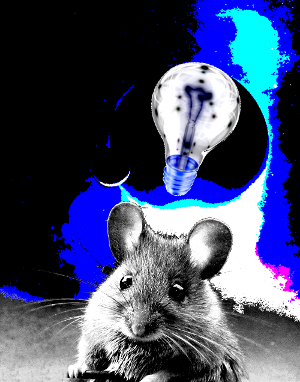Mouse model could make big bite on Ebola
 In the war against Ebola, one big hurdle has been cleared by a tiny mouse.
In the war against Ebola, one big hurdle has been cleared by a tiny mouse.
Researchers at in the US have developed the first genetic strain of mice that can be infected with Ebola and display symptoms similar to those that humans experience.
The team behind the project say it will significantly improve basic research on Ebola treatments and vaccines, which are desperately needed to curb the worldwide public health and economic toll of the disease.
Their report has been published in the AAAS journal Science.
“You can't look for a cure for Ebola unless you have an animal model that mimics the Ebola virus disease spectra,” said study co-author Ralph Baric, professor of epidemiology at the University of North Carolina Gillings School of Global Public Health and UNC School of Medicine.
“For the first time, we were able to produce a novel platform for rapidly developing new mouse models that replicate human disease for this virus, as well as other important emerging human pathogens.”
Normal lab mice do not develop the human form of Ebola disease, including the severe symptoms that can prove fatal.
So the researchers asked whether all mice are immune to Ebola, or whether some strains of mice are susceptible; and if some are susceptible, could they harness the power of mouse genetics to figure out what genes make someone susceptible to the disease.
The team, including researchers from labs at the University of Washington and the National Institutes of Health, were able to breed together eight genetic mouse variants and successfully test a strain of mice to permit active research on potential Ebola vaccines and treatments.
The modelling system accurately reflected the human experience when infected with the virus.
The team was able to show that a combination of genes were involved in producing a range of disease symptoms, so that the genetic variation of the mice directly led to the variety of symptoms that the disease produced.
“It has proven to be a powerful system for studying how genetic variation affects susceptibility to a number of emerging pathogens, including Ebola virus. It has been a tremendous program with big dividends,” said co-author Mark Heise, professor of genetics at the UNC School of Medicine








 Print
Print